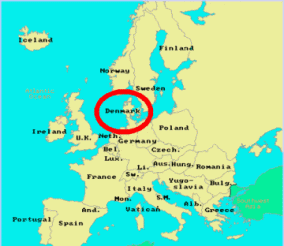
Lots of people have been talking lately about what interoperable data exchange in the US pharma supply chain will look like after the Enhance Drug Distribution Security (EDDS) phase of the Drug Supply Chain Security Act (DSCSA) takes effect in November 2023 (see “Does Interoperability Change In 2023?”, “5 Myths About The DSCSA In 2023” and “Interoperability And The DSCSA”).
Increasingly, I’ve heard the opinion expressed that there will surely be multiple approaches adopted for exchanging data, and so it will be necessary for all of those approaches to be made interoperable with each other. Proponents of this idea claim it is unrealistic to expect a single approach to be accepted by all companies in the supply chain and therefore, having to deal with multiple approaches is inevitable. This kind of talk makes me nervous. Here’s why.
Continue reading DSCSA: Interoperable Data Exchange In 2023






